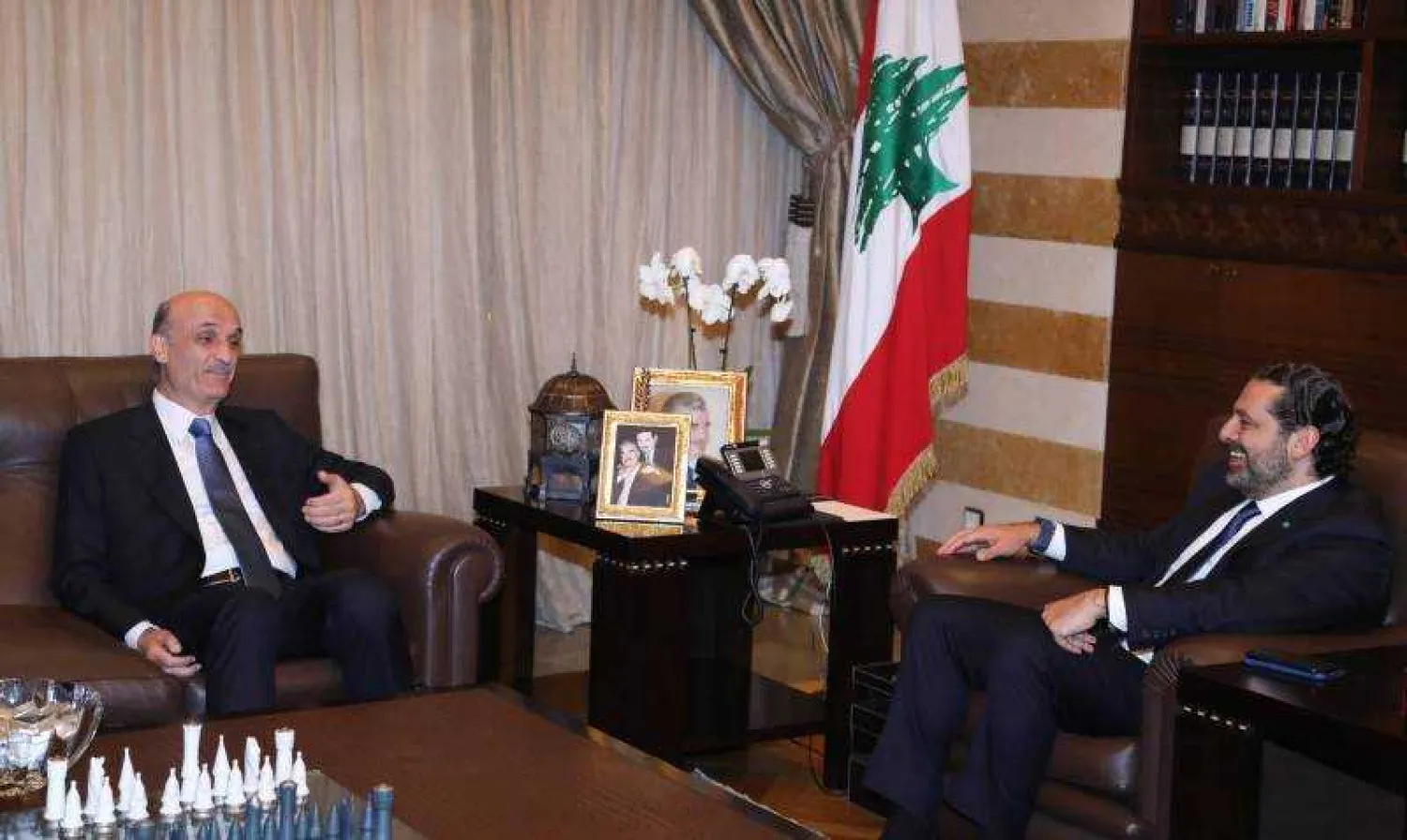A new round of talks kicked off by Prime Minister-designate Saad Hariri to remove obstacles hindering the formation of his new government failed to come up with positive outcomes in the first hours after launching the consultations.
A meeting that Hariri held with Lebanese Forces leader Samir Geagea on Wednesday, and expected talks between him and the head of the Progressive Socialist Party, Walid Jubmlat, do not imply that the PM can present a draft line-up to President Michel Aoun anytime soon.
Both the PSP and the LF are holding onto their demands for specific shares in the cabinet while the head of the Free Patriotic Movement, caretaker Foreign Minister Jebran Bassil, refuses to offer any concessions to break the deadlock.
Furthermore, Bassil is exerting additional political pressure on Hariri by proposing a time limit for government formation and even hinting onto the PM-designate giving up his task if he fails to overcome the obstacles.
Sources told Asharq Al-Awsat that talks between Hariri and Geagea tackled the political and economic threats to the government formation rather than mulling new ideas on ending the current stalemate.
“No tangible progress would been seen with regard to the government formation as long as those obstructing it insist on minimizing the role of the LF and the PSP,” head of LF communications and media department Charles Jabbour told Asharq Al-Awsat on Thursday.
Jabbour explained that the main obstacle is Bassil.
With regard to the study presented by caretaker Justice Minister Salim Jreissati to force Hariri to abide by a deadline in his cabinet formation efforts, sources close to the PM-designate said no one other than Hariri would be able to form the government.
The deadlock revolves mainly around demands made by Jumblat’s PSP and the LF, which have been dubbed as the problems of the Druze and Christian representation in the new government.
Hariri has limited choices with regards to the LF representation. President Michel Aoun is holding onto the positions of the deputy prime minister and the defense ministry, while his son-in-law Bassil has rejected to give the LF a cabinet seat from the FPM’s share.
As for the Druze representation, Jumblat is asking for all three cabinet seats designated for his sect, while the FPM wants to grant its ally Druze MP Talal Arslan a share in the government.









